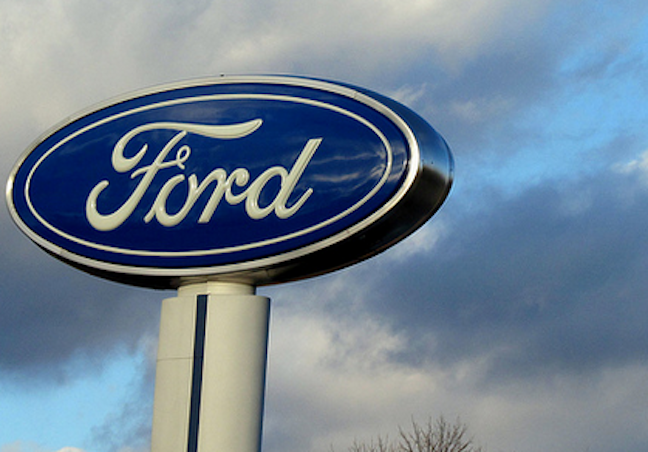Ford Takes Takata Airbag Recall Nationwide, Adds Additional 500,000 Vehicles
For the second time this month Ford has announced plans to expand its recall of vehicles equipped with Takata-produced airbags that may spew shrapnel at passengers upon deployment. Not only does the latest recall cover nearly 500,000 vehicles, it finally takes into consideration the National Highway Traffic Safety Administrations’ request to include vehicles currently registered nationwide.
The Associated Press reports that Ford agreed to expand its recall by 447,310 vehicles in all corners of the United States.
Ford’s expanded recall covers model year 2005 to 2008 Mustangs and model year 2005 and 2006 GT sports cars currently in the United States, Mexico, and Canada.
In all, officials with the company say the tally of Ford vehicles recalled because of defective airbags now includes about 462,911 in the U.S. and its territories, 27,516 in Canada and 7,578 in Mexico affected by the recall.
So far, the company is aware of only one injury related to its use of Takata airbags. That incident, which promoted NHTSA to request the nationwide recall from automakers, occurred when the driver’s side airbag failed in a 2007 Ford Mustang in North Carolina.
Previously, Ford and other automakers had issued recalls in only areas of high humidity including southern Florida, along the Gulf Coast, Puerto Rico, Hawaii, the U.S. Virgin Islands, Guam, Saipan and American Samoa.
Ford’s latest move puts pressure on Chrysler and BMW, the only two automakers that have not heeded NHTSA’s request to expand recalls. Earlier this month, Mazda and Honda announced they would take their recalls nationwide. Honda’s expanded recall covered 2.6 million vehicles in the U.S., while Mazda’s covered about 330,000 cars.
While automakers have begun to expand their recalls, Takata has firmly refused the same suggestion from NHTSA.
Shortly after NHTSA’s request, officials with Takata said during a congressional hearing that they wouldn’t initiate a national recall, in part because they don’t believe that NHTSA has the power to order such an initiative and because testing hasn’t shown what’s really behind the issue.
![Officials with Takata took out full-page ads in major U.S. newspapers to reassure customers. [Click to Enlarge]](../../../../consumermediallc.files.wordpress.com/2014/12/takata.jpg%3Fw=225&h=300)
Officials with Takata took out full-page ads in major U.S. newspapers to reassure customers. [Click to Enlarge]
The ad featured a letter [PDF] from Takata chairman and CEO Shigehisa Takata, saying the company is working to perform tests to determine the cause of the airbag issues and to increase production capacity for replacement airbags.
“Takata will work in unison with automakers to advance our common goal of putting the safety of customers first,” the letter says.
The airbags have been the center of controversy since early summer when car makers began recalling vehicles after receiving reports that drivers and passengers were hit with flying pieces of metal when their airbags deployed.
So far, automakers have recalled nearly 12 million vehicles in the U.S. and about 19 million globally for the issues.
The airbag issues led to a number of ongoing investigations by NHTSA. One centers on Takata’s processes and the production of the airbag.
In the second case, NHTSA opened an investigation into Honda’s reporting procedures after it was revealed the company didn’t properly notify regulators about issues related to the Takata airbags. The car company currently faces the possibility of a record-breaking $35 million fine for its reporting failures.
It was previously reported that Takata uses an unusual chemical explosive – ammonium nitrate – for the chemical’s ability to make airbags inflate in a matter of milliseconds. Since then the company notified NHTSA of a change in its chemical compound.
Ford expands drivers air bag recall nationwide [Associated Press]
Want more consumer news? Visit our parent organization, Consumer Reports, for the latest on scams, recalls, and other consumer issues.


